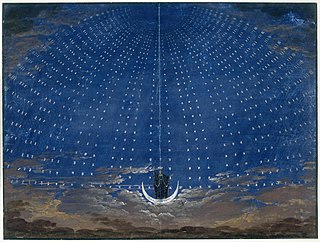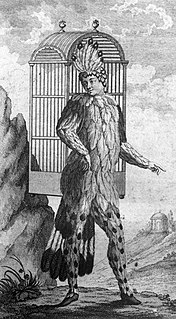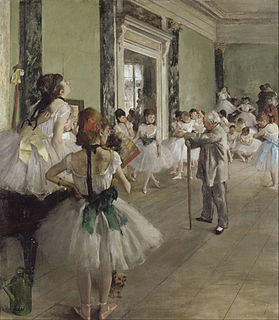
The Magic Flute, K. 620, is an opera in two acts by Wolfgang Amadeus Mozart to a German libretto by Emanuel Schikaneder. The work is in the form of a Singspiel, a popular form that included both singing and spoken dialogue. The work was premiered on 30 September 1791 at Schikaneder's theatre, the Freihaus-Theater auf der Wieden in Vienna, just two months before the composer's premature death.
The year 1791 in music involved some significant events.

The Theater an der Wien is a historic theatre in Vienna located on the Left Wienzeile in the Mariahilf district. Completed in 1801, the theatre has hosted the premieres of many celebrated works of theatre, opera, and symphonic music. Since 2006, it has served primarily as an opera house, hosting its own company.

Peter Winter was a German opera composer who followed Mozart and preceded Weber, acting as a bridge between the two in the development of German opera.

Ignaz Xaver, Ritter von Seyfried was an Austrian musician, conductor and composer. He was born and died in Vienna. According to a statement in his handwritten memoirs he was a pupil of both Wolfgang Amadeus Mozart and Johann Georg Albrechtsberger. He edited Albrechtsberger's complete written works after his death, published by Tobias Haslinger. His own pupils included Franz von Suppé, Heinrich Wilhelm Ernst, Antonio Casimir Cartellieri, Joseph Fischhof and Eduard Marxsen.
Franz Xaver Gerl was a bass singer and composer of the classical era. He sang the role of Sarastro in the premiere of Mozart's opera The Magic Flute.

Benedikt Emanuel Schack was a composer and tenor of the Classical era, a close friend of Mozart and the first performer of the role of Tamino in Mozart's opera The Magic Flute.

(Maria) Josepha Weber was a German soprano of the classical era. She was a sister-in-law of Wolfgang Amadeus Mozart, and the first to perform the role of The Queen of the Night in Mozart's opera The Magic Flute (1791).
(Friedrich) Sebastian Mayer was a bass singer and stage director of the Classical era.

The Theater auf der Wieden, also called the Freihaus-Theater auf der Wieden or the Wiednertheater, was a theater located in the then-suburban Wieden district of Vienna in the late 18th century. It existed for only 14 years (1787–1801), but during this time it was the venue for the premiere of no fewer than 350 theatrical works, of which the most celebrated was Mozart's opera The Magic Flute. During most of this period the director of the theater was Emanuel Schikaneder, remembered today as librettist and impresario of The Magic Flute.
Johann Georg Lickl, also Ligkl, Hans-Georg Lickl, Hungarian: Lickl György was an Austrian composer, organist, Kapellmeister in the main church of Pécs, and piano teacher.

Carl Ludwig Giesecke FRSE was a German actor, librettist, polar explorer and mineralogist. In his youth he was called Johann Georg Metzler; in his later career in Ireland he was Sir Charles Lewis Giesecke.

Johann Joseph Nouseul was an actor, singer, and theater manager of the 18th and early 19th centuries. He is remembered for having premiered the role of Monostatos in Wolfgang Amadeus Mozart's opera The Magic Flute.

Josef Georg Hörl was an Austrian lawyer, served as mayor of Vienna from 1773 to 1804. He is also considered to be the longest-serving mayor of Vienna.

Das Labyrinth oder Der Kampf mit den Elementen. Der Zauberflöte zweyter Theil is a "grand heroic-comic opera" in two acts composed in 1798 by Peter von Winter to a German libretto by Emanuel Schikaneder. The work is in the form of a Singspiel, a popular form that included both singing and spoken dialogue. The opera is a sequel of Mozart's The Magic Flute.
David J. Buch is an American musicologist.
Der Stein der Weisen, oder die Zauberinsel is a two-act singspiel jointly composed by Johann Baptist Henneberg, Benedikt Schack, Franz Xaver Gerl, Emanuel Schikaneder, and Wolfgang Amadeus Mozart in 1790. The libretto was written by Schikaneder.

Vestas Feuer is a fragment of an opera composed in 1803 by Ludwig van Beethoven to a German libretto by Emanuel Schikaneder. The plot involves a romantic intrigue in which the heroine temporarily becomes a Vestal Virgin Beethoven set to music only the first scene of Schikaneder's libretto, then abandoned the project. The fragment is rarely performed.



















